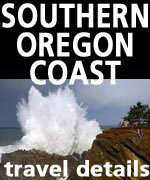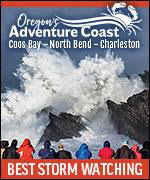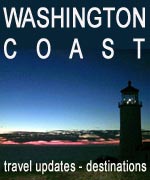Amazing Above Oregon Coast, Portland: Lunar Eclipse, Super and Blue Moon
Published 01/28/2018 at 5:55 PM PDT
By Oregon Coast Beach Connection staff
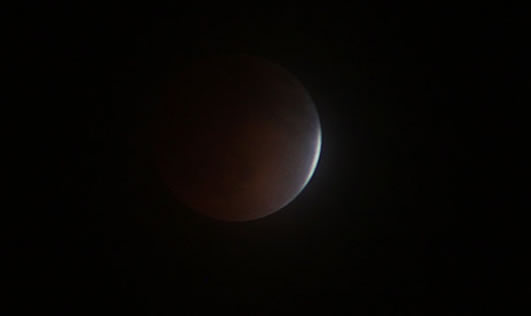
(Oregon Coast) – Some strange and surreal sights are coming to the skies of the Oregon coast, as well as Portland and the rest of the state. It's a triple whammy of astronomical proportions: a blue moon, a lunar eclipse and a super moon all at once on January 31, actually now called a Super Blue Blood Moon. (Oregon coast elipse photo above courtesy Seaside Aquarium).
The beaches and high viewpoints along the Oregon coast will be some of the best spots to enjoy this phenomenon, because of the lack of street lights. However, weather on the shoreline and inland spots like Portland will likely prove problematic. Mostly cloudy skies are predicted for the overnight hours on Wednesday morning, but the coast may have a slightly better chance of breaks between the cloud masses as they tend to move faster there than inland.
It's an extremely rare event: the last time all three came together on Earth was 1992. The last time all three coincided in the Pacific Northwest was 1866.
Earth's shadow will cover the moon completely, and for 76 minutes the only light you'll see coming off the lunar surface will be the eerie red glow from Earth's sunrise and sunset on different parts of the world.
Includes exclusive listings; some specials in winter
In Cannon Beach:
Includes rentals not listed anywhere else
In Manzanita, Wheeler, Rockaway Beach:
Some specials for winter
In Pacific City, Oceanside:
Some specials for winter
In Lincoln City:
Some specials for winter
In Depoe Bay, Gleneden Beach:
Some specials for winter
In Newport:
Look for some specials
In Waldport
Some specials for winter
In Yachats, Florence
Some specials for winter
According to Jim Todd of Portland's OMSI, totality starts at 4:51 a.m. and the point of greatest eclipse will be at 5:29 a.m.
“Astronomical Twilight begins at 5:51 a.m., thus the sky glow emerges above the eastern horizon,” Todd said. “This will diminish some of the redness of the totality on the moon, as well as low above the horizon.”
The eclipse phase of totality will last for 76 minutes, ending at 6:07 a.m., with the partial eclipse phase ending the entire episode at 7:11 a.m. Sunrise kicks in at 7:33 a.m., followed by moonset two minutes later.
Todd noted that you don't need to shield your eyes as with this summer's solar eclipse, and that binoculars or telescopes will enhance the experience.
The other distinctive part is the absolute rarity of this event. The eclipse happens with the moon at perigee – closest to the Earth – called a super moon. It's also the second full moon this month – and the second super moon in January. All this combined with the eclipse is a massive coinciding of events: so rare that it hasn't happened on Earth since December 30, 1982, and that was not even in North America.
“For observers in the Pacific Northwest, it is the first time all three of these phenomena will line up since March 31, 1866,” Todd said.
However, NASA TV (NASA.gov/live) will be streaming the eclipse starting at 2:30 a.m. PST, making it a good alternative.
For those in or visiting Portland, you can learn more about the current night sky and the eclipse in Starry Night Live, shown daily at OMSI's Kendall Planetarium.
Along the Oregon coast, there will be plenty of great spots to watch, especially if you can get out on a dark beach or a high viewpoint. Places to check out are those at Manzanita, just south of Cannon Beach, Anderson's Viewpoint near Oceanside, above Newport's Nye Beach, Cape Foulweather near Depoe Bay, or the pulloffs near Cape Perpetua. Oregon Coast Lodgings for this event - Where to eat - Maps - Virtual Tours
Stay off smaller beaches at night, and stick to wide stretches where there's a few hundred feet between the tideline and the cliffs or vegetation line. The Oregon coast may have a slightly easier time observing the phenomenon as clouds move more quickly and the breaks between them may happen more often.
Todd said the next total lunar eclipse will take place on January 20, 2019 at 9:12 p.m. and promises to be spectacular, as it occurs at night rather than at sunrise.
Cannon Beach Lodging
Nehalem Bay Lodgings
Manzanita Hotels, Lodging
Three Capes Lodging
Pacific City Hotels, Lodging
Lincoln City Lodging
Depoe Bay Lodging
Newport Lodging
Waldport Lodging
Yachats Lodging
Oregon Coast Vacation Rentals
Oregon Coast Lodging Specials
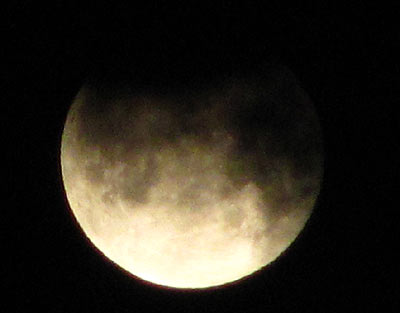
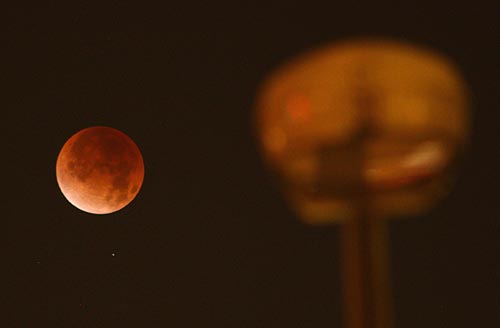
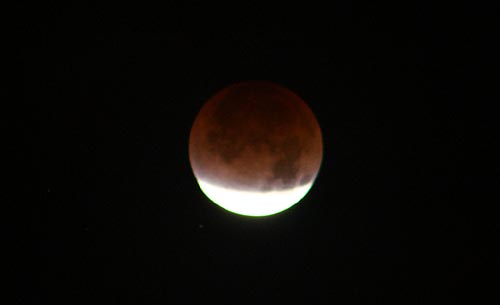
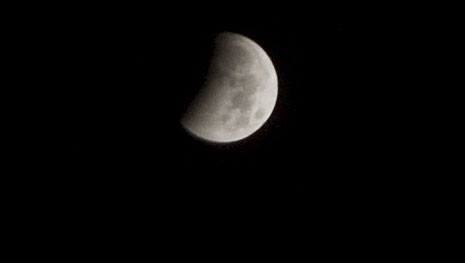
More About Oregon Coast hotels, lodging.....
More About Oregon Coast Restaurants, Dining.....
LATEST Related Oregon Coast Articles
Likely just before dawn best hour but peak happens during daylight. Weather
Dark Sky Week is Prime Along Oregon Coast: Where and Where Not to Go
General guide to dark sky viewing from south to north coast. Astronomy
Sizable Price Drop, Deals in Lincoln City During Quiet of April on Central Or...
20 perc off at A1 Vacation Rentals across its roster, including Gleneden Beach. Lincoln City specials
Upcoming S. Oregon Coast Events Include Gem Show, History: Coos Bay, Bandon
May 6 talk at Coos History Museum, Mayfly Fest May 17, Bandon Rock / Gem Show June 7,8
Washington Coast Cleanup on April 19 - Coinciding with Oregon Coast's SOLVE E...
From the Puget Sound to Long Beach, alongside Oregon's cleanup. Washington coast events, Seaside events
Astoria's Riverwalk Gets New Lighting, More N. Oregon Coast Roadwork
Delays coming this summer, but the riverwalk has a new look. Seaside, Cannn Beach
April Gets Even Cheaper Midweek at Depoe Bay, Lincoln City: Oregon Coast Deals
Off-season rates plus more at Keystone Vacation Rentals. Depoe Bay lodging specials, Lincoln City hotel reviews, Newport hotel reviews
Washington Coast Begins Week of Clam Digs, April 12 Through 18
Long Beach, Twin Harbors, Mocrocks and Copalis at different times. Washington coast events
Back to Oregon Coast
Contact Advertise on BeachConnection.net
All Content, unless otherwise attributed, copyright BeachConnection.net Unauthorized use or publication is not permitted










